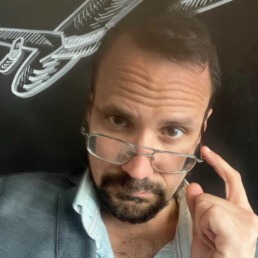Born and raised in Brazil but has spent his entire adult life in the United Kingdom, Victor Fraga possesses a unique perspective on the political landscapes of both nations. Witnessing the erosion of Brazilian democracy beginning in 2016, he became acutely aware of the mainstream media’s crucial role in both demonizing progressive leaders and facilitating the rise of the far-right. This realization prompted him to produce and direct The Coup d’Etat Factory, a hard-hitting documentary that exposes the manipulative tactics employed by the media. Now, Fraga returns with his latest film, The Bad Patriots.
In this exclusive interview, Fraga—also the founder of indie film publication Dirty Movies—shares insights into his new project, which collaborates with social realist filmmaker Ken Loach and former Labour leader Jeremy Corbyn. He also delves into his unyielding commitment to challenging the myth of “balance” in the British media. “It’s tragic,” he asserts, “that the same shocking manipulation and censorship tactics I witnessed in Brazil are now rampant in the UK, the US, and other so-called ‘developed’ nations. Perhaps we’re not as developed as we like to think.”
It’s a pleasure to meet you, Victor! What inspired you to create The Bad Patriots, and what personal connections do you have to its topics?
Victor Fraga: I had previously made a film about media manipulation and censorship in Brazil, my birth nation. It was called The Coup d’Etat Factory. So, this topic has been close to my heart for a long time. After my film was finished, I realized that—contrary to belief—the UK is not quite a role model of media balance and democracy. The manipulation techniques are far more sophisticated here.
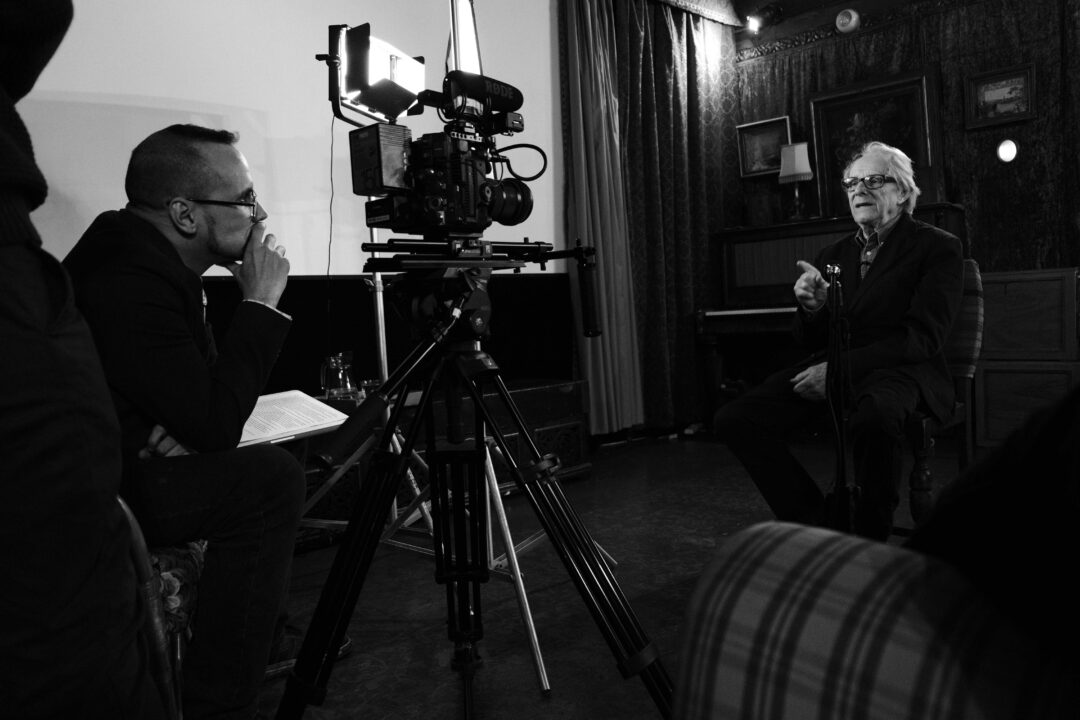
I first met Jeremy in 2016, when he was the Leader of the Labour Party, and I was campaigning against the coup that removed President Dilma Rousseff in Brazil. Jeremy has a close and personal association with Latin America, consistently visiting the continent and campaigning for international solidarity. His wife Laura is Mexican. He identified himself with my film so much that we did four or five panels together and became very close. I interviewed Ken three times in the past, and he, too, knew my work. So Jeremy and I insisted that he join the untitled The Bad Patriots.
You’ve mentioned witnessing the collapse of democracy in Brazil and the mainstream media’s role in that process. How has this experience shaped your understanding of media’s influence in the UK, particularly regarding figures like Ken Loach and Jeremy Corbyn?
VF: I have left Brazil, yet Brazil has never left me. I feel a duty towards both countries, where I was born and raised, and where I have resided for roughly a quarter of a century. These two films resulted from my activist and artistic commitment to both nations.
My experience with both countries is constant; one does not come after the other. I am intimately and consistently connected with both. I think I’m well-informed and have connections to influential personalities on both sides of the Atlantic, so I can comment on and compare the two countries.
Your films often explore themes of character assassination and censorship. How do you think the narratives around Loach and Corbyn serve as a microcosm of broader societal issues regarding free speech and dissent?
VF: Loach and Corbyn are much more vulnerable than the average citizen because they are well-known. Corbyn points out in the film that it’s much easier to attack individuals than ideas. The average British person might suffer micro gestures of censorship or perhaps even lose their job due to their political inclinations (in more extreme cases).
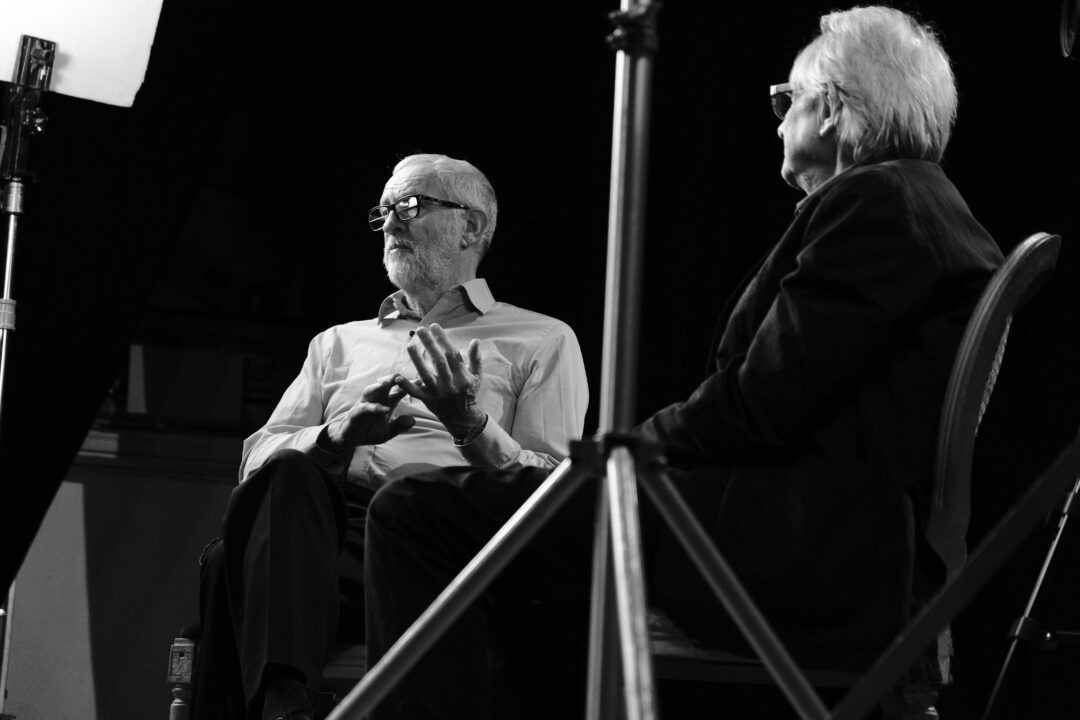
Very few people are subject to character assassination, defamation, and lawfare to the same extent as Ken and Jeremy, particularly the latter. The attacks are so fierce that despite being such outspoken and courageous people, they, too, have to self-censor on occasion. Freedom of speech is but an illusion.
Can you explain the central thesis of the documentary? What myths are you aiming to bust?
VF: The film’s central thesis is that the British media are highly biased and hostile to voices vaguely critical of capitalism and the establishment. The UK is a very conservative country. I’m a pacifist, and I’m not a Marxist. Yet my political views and those of Corbyn and Loach are often viewed as “extremist.”
I set out to bust the myth of media balance in the British media, the facile pseudo-patriotism disseminated by the British establishment (including Keir Starmer’s rotten Labour Party), and the weaponization of antisemitism, among others.
How did you approach the research for this film, particularly in gathering diverse perspectives on Ken Loach and Jeremy Corbyn?
VF: Ken, Jeremy, and I met a few weeks before the shooting (which was done in a single day), and I asked them to collate anecdotes of media bias and censorship to which they were subjected. I researched newspaper articles that demeaned and insulted Ken and Jeremy – which wasn’t a particularly difficult job. There’s so much hate against these guys out there.
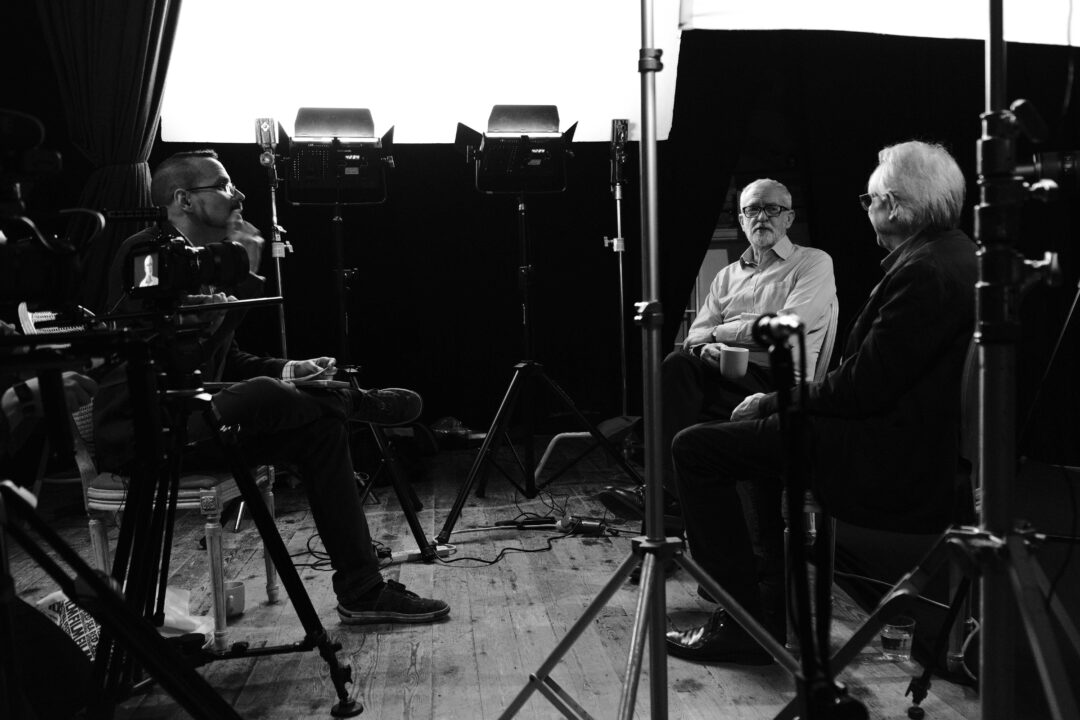
Finally, I was familiar with Ken’s filmography, which helped me structure the movie with his clips. It was a relatively simple process, a straightforward project. I would call it politically audacious yet aesthetically unpretentious (I’m not embarrassed by my microbudget and by exposing the informality of the movie, such as the failing microphone, which I intentionally chose to leave in the film).
What were some of the biggest challenges you faced while filming, especially regarding accessing sources or differing viewpoints?
VF: There were no significant issues. We are super grateful to our friends at Sands Studios, who provided their incredible facilities in kind. Christine Edzard and Olivier Stockman are committed to activist cinema—films that make a difference. Ken and Jeremy, too, were super open and relaxed.
Were there any surprising revelations or moments during the production that changed your perspective on the subjects?
VF: The most significant change came during post-production, on October 7th, when Hamas attacked, and Israel retaliated with the most shocking genocide in modern history. We recorded the film a few months before, and the topic was already present. I decided to make it much more prominent and close the movie with a pertinent reflection.
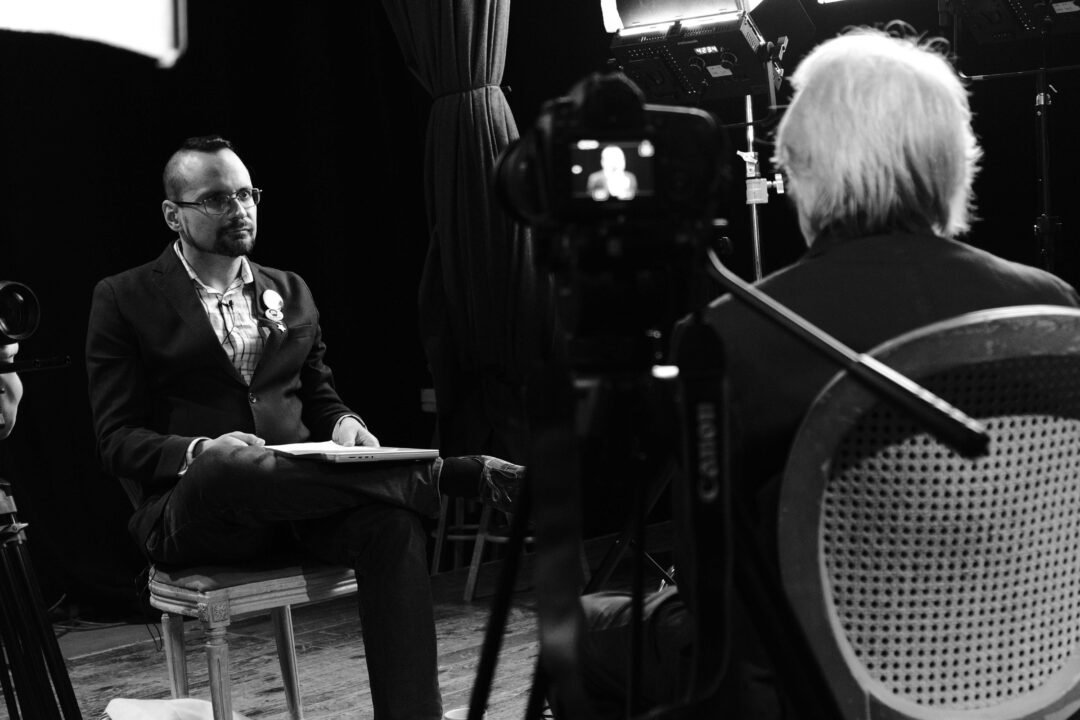
There were no major surprises during the filming. Instead, some of the anecdotes are hilarious in their absurdity, such as comparing The Wind That Shakes the Barley to Mein Kampf and Jeremt Corbyn riding a Mao Zedong bike.
Are there any particular moments in the documentary that resonate most strongly with the audience? Why?
VF: Hopefully, the part on Britain’s inability to self-reflect and recognize its past atrocities (the British Empire). The tub-thumping patriotism that our media disseminates is perhaps the most significant root cause for the defamation of progressive voices. Those who dare to challenge the establishment and refuse jingoism are not traitors. Quite the opposite: they are the ones who care about the average citizen. Hence, the ironic film title.
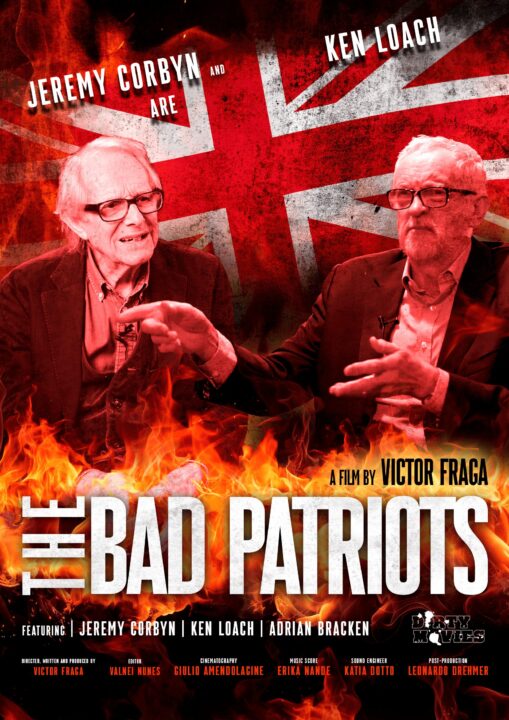
What are your plans after this project? Are there other topics or themes you’re interested in exploring next?
VF: I am currently a producer on a much larger project for a well-known filmmaker, a close friend of mine. Fingers crossed that comes to fruition. And I’m working on the third movie in the Dirty Media trilogy (the first two being The Coup d’Etat Factory and The Bad Patriots).
It features a very outspoken and energized Noam Chomsky in his penultimate interview before health issues prevented him from talking and writing. Maybe I will call it The Bad Jew.

